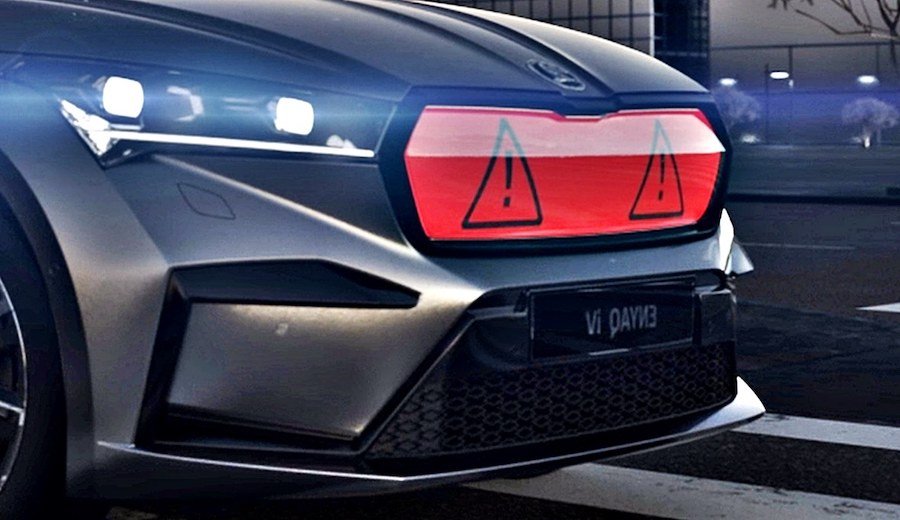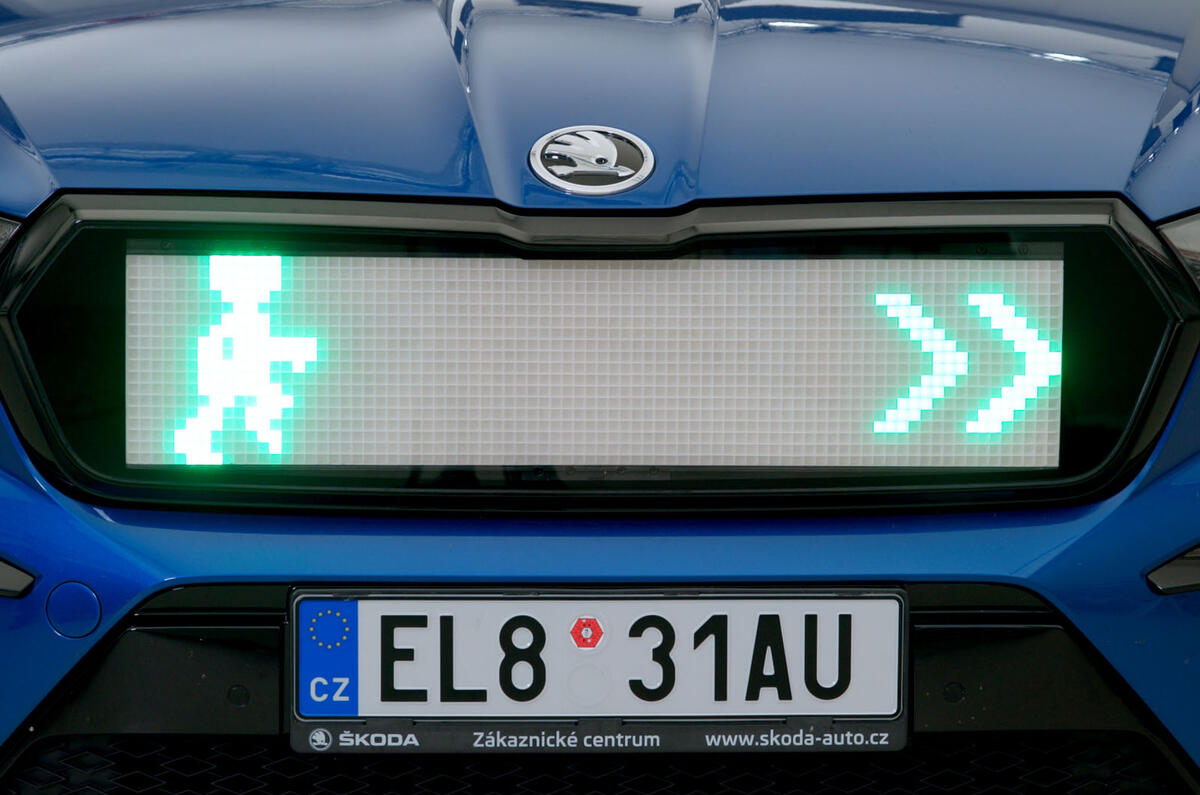New Skoda grille gives pedestrians green light to cross road

An LED screen that communicates with pedestrians is being trialled by Skoda in a bid to increase safety.
Replacing the electric Skoda Enyaq IV’s Crystal Face grille, the screen strip flashes green with arrows when it is safe to cross, and red with a cross when, in extreme situations, it is not. An orange triangle is used to warn pedestrians that the car is about to begin moving again.
The system works automatically and without any driver intervention – for example, when the car approaches a pedestrian crossing to inform those waiting to cross in advance that the car has spotted them and it is safe to go.
Skoda says a car approaching the crossing that is unable to stop – for a variety of reasons – can send out a clear signal to pedestrians not to cross. The driver won't be able to control what is displayed on the screen, Skoda suggests.
The chosen symbols are being used in the trial because they are “widely recognisable”, Skoda says, but the LED screen does allows for the creation of unique animations so it could be used for an array of other situations.
More than 16,000 pedestrians were injured in road traffic incidents in 2021 – equating to more than 300 per week – according to annual figures released by the Department for Transport.
Skoda said: “Technology like this could potentially help to reduce the number of overall pedestrian injuries on the road.”
This new tech also comes in response to concerns addressed by changes to the UK’s Highway Code, which states that drivers should no longer signal pedestrians – either by flashing headlights or waving their hands, for example – so they can cross a road. This is because it could be mistaken by other road users, or put pedestrians in harm's way if other drivers are unaware they’re crossing.
Other revisions to the Highway Code in 2022 were made as part of a broader change with a new hierarchy for road users. This includes that drivers should now give way to pedestrians crossing, or waiting to cross, a road they are driving into or out of. Skoda says more vulnerable road users could benefit from the LED communications between cars and pedestrians at these points.
The new technology is part of a wider trial within the Urban Mobility initiative of the European Institute of Innovation and Technology.

